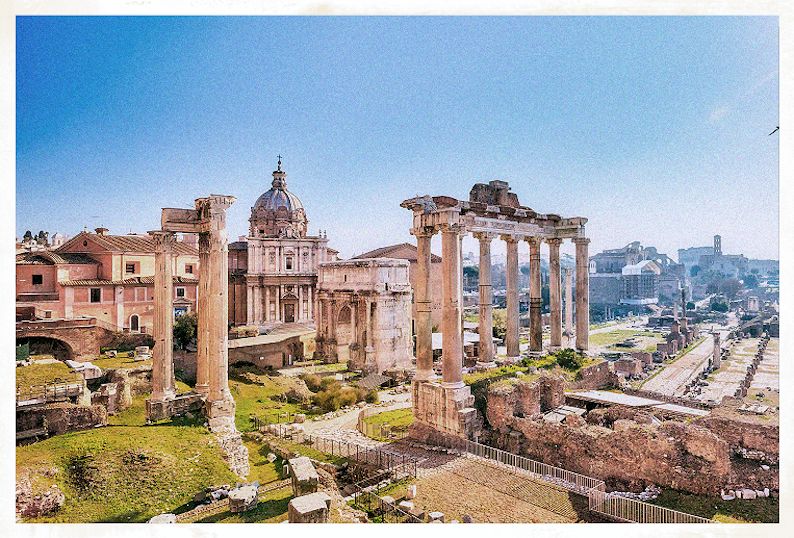
Latin language, a very short history of the Latin Language from the early period to modern Latin, with some enlightening quotes, useful links and materials.
Latin is a precise, essential language. When the era of demagogues and charlatans begins, a language like Latin will no longer be of use and any peasant will be able to give a public speech with impunity and speak in such a way as not to be kicked off the rostrum. And the secret will consist in the fact that he, using an approximate, elusive phrasebook, will be able to speak for an hour without saying anything.
Giovannino Guareschi
Loquendum ut vulgus, Sentiendum ut Sapientes.
Omnia vincit amor, et nos cedamus amori.
Love conquers all things; let us yield to love.
Virgil
Dum inter homines sumus, colamus humanitatem.
As long as we are among humans, let us be humane.
Seneca
Acceptissima semper munera sunt, auctor quae pretiosa facit.
Those gifts are always the most acceptable which our love for the donor makes precious.
Ovid
Si vis amari, ama.
If you want to be loved, love.
Seneca
Amicitiae nostrae memoriam spero sempiternam fore.
I hope that the memory of our friendship will be everlasting.
Cicero
Ad turpia virum bonum nulla spes invitat.
No expectation can allure a good man to the commission of evil.
Seneca
Aequam memento rebus in arduis servare mentem.
Remember when life’s path is steep to keep your mind even.
Horace
Acclinis falsis animus meliora recusat.
The mind intent upon false appearances refuses to admit better things.
Horace
Ubi concordia, ibi Victoria.
Where there is unity, there is the victory.
Publius Syrus
Semper inops quicumque cupit.
Whoever desires is always poor.
Claudian
Latin Language was the idiom of ancient Rome and the neighboring territory of Latium. With the spread of Roman power Latin was carried to every part of the known ancient world and became the dominant tongue of western Europe. It was the language of scholarship and diplomacy until the 18th century and of the Roman Catholic liturgy until the late 20th century.
The Latin language was not native to Italy but was brought into the Italian Peninsula in prehistoric times by Italic peoples who migrated from the north. Latin is a member of the Italic subfamily of the Indo-European languages; among non-Italic Indo-European languages, it is related especially closely to Sanskrit and Greek and to the Germanic and Celtic subfamilies.
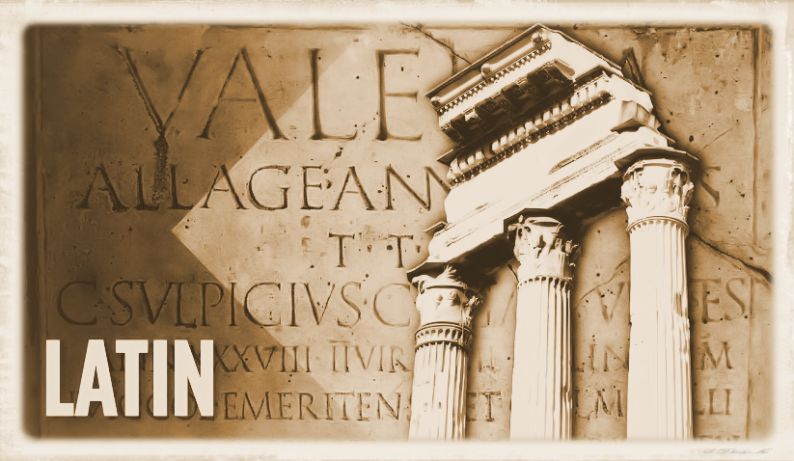
In Italy, Latin was originally the dialect of the region around Rome. Within the Italic languages Latin, Faliscan, and other dialects formed a Latinian group distinct from other Italic languages, such as Oscan and Umbrian. Early Latinian inscriptions survive from the 6th century BC; the oldest texts clearly in Roman Latin date mostly from the 3rd century BC.
Latin was influenced by Celtic dialects in northern Italy, by the non-Indo-European Etruscan language in central Italy, and by Greek, which was spoken in southern Italy as early as the 8th century BC. Under the influence of the Greek language and its literature, which was first translated into Latin in the second half of the 3rd century BC, Latin gradually developed into a great literary tongue.
Ancient Literary Latin
The Latin literary language may be divided into four periods, corresponding in general to the periods of Latin literature.
The Early Period
(240-70 BC). This period includes the writings of Ennius, Plautus, and Terence.
The Golden Age
(70 BC-AD 14). This period is famed for the prose works of Julius Caesar, Cicero, and Livy and for the poetry of Catullus, Lucretius, Vergil, Horace, and Ovid. During this period, in both prose and poetry, the Latin language developed into a highly artistic medium of expression and attained its greatest richness and flexibility.
The Silver Age
(14-130). This period is characterized by a striving both for rhetorical elaboration and ornament and for concise and epigrammatic expression, the latter qualities being found especially in the works of the philosopher and dramatist Seneca and in those of the historian Tacitus.
The Late Latin Period
Extending from the 2nd century to the 6th century AD (circa 636), this period includes the Patristic Latin of the Fathers of the Church. During the Late Latin period invading barbarian tribes brought into the language numerous foreign forms and idioms; this corrupted Latin was termed the lingua Romana and was distinguished from the lingua Latina, the classical tongue cultivated by the learned.
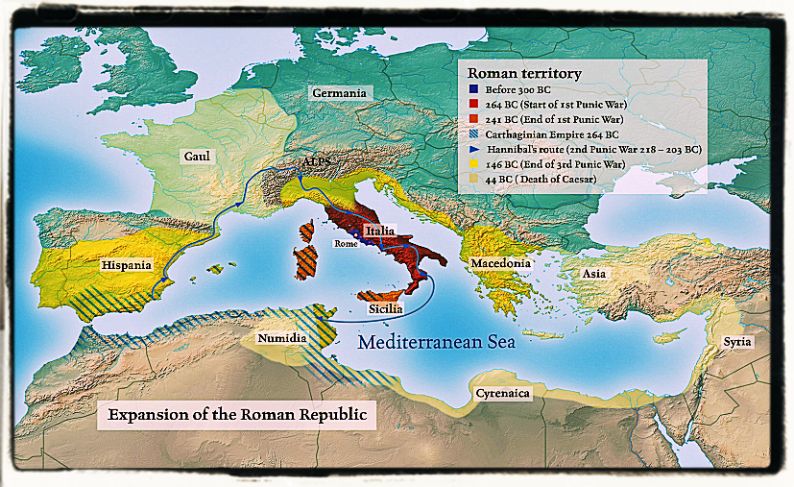
Ancient Spoken Latin
The colloquial speech of cultured Romans appears in the works of various writers, notably in the comedies of Plautus and Terence, the letters of Cicero, the Satires and Epistles of Horace, and the Satyricon of Petronius Arbiter. It is characterized by freedom of syntax, by the presence of numerous interjections, and by the frequent use of Greek words. This colloquial speech of polite society (sermo cotidianus) is not to be confused with the sermo plebeius, the language of the uneducated classes, which shows a greater disregard for syntax, a love of new words, and a striving for simplicity, especially in word order.
The sermo plebeius is known as Vulgar Latin, a term that sometimes includes the sermo cotidianus of the more educated Romans. The Romance languages developed not from the literary Latin language but from the sermo plebeius of the Late Latin period, when it was also known as lingua Romana. For instance, equus (“horse”) fell out of use, and caballus (“nag,” “packhorse”) provided the Romance words for horse (cheval, caballo); similarly, the Romance word for head (tête, testa) comes not from Latin caput, but from a Latin slang word for head (testa), literally “pot.”
Medieval Latin
Latin was the language of letters in western Europe in the Middle Ages. The Latin of this period is termed Medieval Latin or Low Latin. Even for the people in general, Latin continued to be a living language, because the church provided a huge mass of ecclesiastical literature in both prose and poetry. The language, however, underwent many changes. The syntax was further simplified, new words were adopted from various sources, and new meanings came into existence; nevertheless, Latin changed far less during this period than did either French or English.
New Latin or Modern Latin
In the 15th and 16th centuries New Latin, also called Modern Latin, came into existence. The writers of the Renaissance produced a new and brilliant Latin literature that was closely imitative of Latin classical writers and especially of Cicero. Almost all books of importance, scientific, philosophical, and religious, were written in Latin at this time, including the works of the Dutch scholar Desiderius Erasmus, the English philosopher Francis Bacon, and the English physicist Isaac Newton, and Latin was the medium of diplomatic intercourse among European nations.
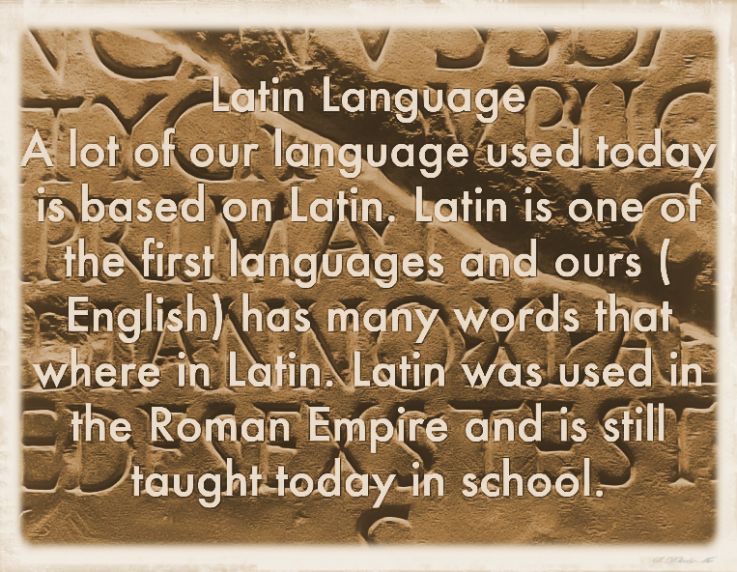
Not until the end of the 17th century did Latin cease to be an international tongue. During the 18th and 19th centuries, however, it remained the language of classical scholarship, and even in the 20th century scholarly treatises are sometimes composed in Latin. The Roman Catholic church still uses Latin as the language of its official documents.
In the modern teaching of Latin, several methods of pronunciation have been accepted. The continental method is based on the pronunciation of modern European languages, the chief continental pronunciation today being that used by the Roman Catholic church, which favors a pronunciation similar to that of Italian. In the English method, Latin words are pronounced as in English, each syllable, however, being pronounced separately.
The Roman method is a conjectural reconstruction of Latin pronunciation of the Ciceronian period. This method is in use in schools and colleges both in the U.S. and abroad. Proper names, however, when mentioned out of their Latin context, are still pronounced according to the principles governing the language of the particular country; thus, the pronunciation of the name Cicero would be in Germany Tsítsero, in Italy Chíchero, in Spain Thíthero, in France Siséro, in England Sísero.
Latin in antiquity has less flexibility and grace than Greek; its vocabulary was more limited, and it was less able to express abstract ideas. The Romans realized the limitations of their tongue and borrowed many words from the Greeks. Latin, rigorous in syntax and weighty in diction, has vigor and precision and has proved throughout the centuries an admirable vehicle for the expression of serious thought.
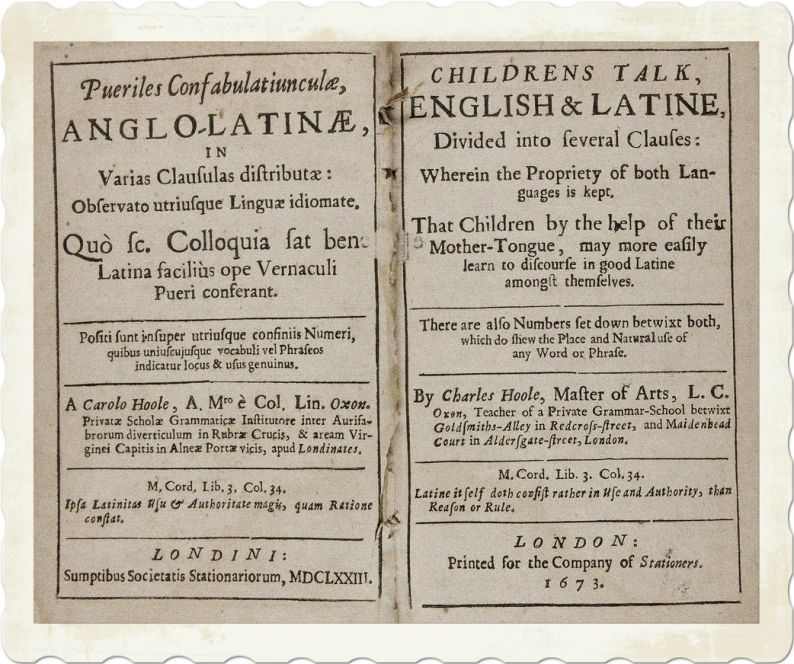
Its survival has been twofold: Not only has literary Latin itself remained in use to the present time, but it also lives on in the Romance languages, which represent the modern evolution of Vulgar Latin; Italian, in particular, may be described as modern Latin (Romance Languages). English has borrowed extensively from Latin, both directly, and indirectly through French. The Latin language is significant not only because of its literature, but also because a study of its development provides information on the history of language in general and specifically on the origin and development of several major languages of modern Europe.
From the seventeenth century onwards, but during the eighteenth century especially, when Roman models were copied in prose and poetry, writers used words or grammatical constructions which originated in Latin, and which gave an impression of Latin in English. Words of Latin derivation are commonly longer and more abstract in meaning than their Anglo-Saxon counterparts: e.g. vision (Lat.) = sight (O.E.). In general Latinate diction, then, will be more abstract, and liable to be polysyllabic. The Periodic Sentence is an attempt to mimic Latin syntax, which leaves the main verb until late in the sentence. Two eighteenth-century prose-writers fond of Latinisms are Dr Johnson and Gibbon. Milton is also famous for his Latinate constructions in Paradise Lost (1667), as in ‘Him the Almighty Power/ Hurled headlong’ which twists the normal English order of subject-verb-object into object-subject-verb.
You can also read:
Latin influence in the English language
Latin and the English language
Learn more visiting these useful websites:
https://www.latin-english.com Latin English Dictionary
https://www.etymonline.com Online Etymology Dictionary
You can download the following books on Latin at this page:
Latin Language: Bennett, Charles E.: New Latin Grammar;
D’Oogle, Benjamin L.: Latin for beginners;
Wine, women and songs. Medieval Latin Student’s Songs, including translation and commentary by John Addington Symonds.

